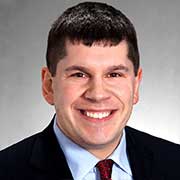Dec 19, 2023
Volunteering as a condominium board member is an important job. Condominium board members serve many important roles and make many important decisions as to condominium governance – everything from setting budgets, to maintaining the common areas, to enforcing the condominium’s governing documents when needed. As those decisions are made, and as board members act in their governing capacity, it is important for board members to know who or what they are to be serving, especially when decisions are difficult or disputed. Put another way, board members must keep in mind the duty they owe – their “fiduciary duty.” A “fiduciary” duty, per Webster’s Dictionary, is one “held or founded in trust or confidence.” The fiduciary duty of a condominium board member is a duty owed to the condominium association or trust itself, and not to any individual or group of unit owners.
The fiduciary duty owed to the condominium trust or association is important in many areas of condominium decision making, but in Masschusetts, this duty is especially important with regard to decisions on the maintenance, repair, and replacement of condominium common elements.
While the concept may seem simple on its face, it is a commonly misunderstood aspect of condominium association governance. This is because it is natural for any board member, no matter the size or constitution of a condominium, to believe that unit owners should “control” the association. For this reason, many board members believe that in condominium governance they should look out for their own individual interests as a unit owner. It is also natural for board members to believe that, even if they are not looking out for their own individual interests, they should be doing what is best for the unit owners themselves.
Board members often believe this idea of “unit owner control” requires all or most board decisions to be reviewed and approved by a majority of the unit owners. This idea of control is a common misconception by unit owners as well, and many non-board-member unit owners believe that they should participate in decision making for their condominium. Through the years, we have heard reasoning from unit owners such as “the board has a duty to do what the unit owners want it to do” and “board members represent unit owner interests.” However, these beliefs are incorrect. Board members who act solely for their individual interests or the interests of the perceived majority of unit owners are facing a legal trap for the unwary, subjecting themselves to possible violations of their actual fiduciary duty to the condominium association or trust.
Massachusetts courts, interpreting the Massachusetts Condominium Statute (G.L. c. 183A), have clarified that the fiduciary duty of each board member is, in fact, a duty to the condominium association or condominium trust itself. This concept of fiduciary duty means that each board member must act in the best interest of the condominium association or condominium trust, even when the board member and/or other unit owners do not agree that the action is in their best interest.
The Massachusetts Supreme Judicial Court has confirmed this concept of fiduciary duty to the condominium association or condominium trust in several cases that have come before the Court. These include the 1990 case, Cigal v. Leader Development Corp., wherein the Court confirmed that a condominium association board owed a fiduciary duty similar to that of a corporate board, that is, to the corporation itself, analogous to the condominium association or trust, rather than to the stockholders of a corporation, analogous to the unit owners of a condominium. Cigal v. Leader Dev. Corp., 408 Mass. 212, 219 (1990). The Court also confirmed the duty again in a 2002 case, Office One, Inc. v. Lopez, stating, in pertinent part, that “as matter of law, members of a governing board of a condominium association, in the capacity of the trustees here, owe no fiduciary duty to individual condominium unit owners.” Office One, Inc. v. Lopez, 437 Mass. 113, 125 (2002). Other Massachusetts courts, including the Appeals Court and the Land Court, have confirmed this duty in various cases as well. See, e.g., McQuilly v. Belfi, 99 Mass. App. Ct. 1115, 2021 WL 914034, at *4 (2021) (Rule 23.0); Palm v. Stonehedge Farm Condo. Tr., No. 277787, 2005 WL 844972, at *8 (Mass. Land Ct. Apr. 13, 2005) (Scheier, C.J.).
As Massachusetts courts have highlighted in these cases, it is helpful to think of a condominium board as a corporate board, required to make decisions that are in the best interest of the corporation, with the corporation being analogous to the condominium association or trust in condominium governance. This thinking is in contrast to the duty of, for example, a trustee of a Massachusetts business trust, who would have a fiduciary duty to act in the best interest of the beneficiary or beneficiaries. Unit owners, though often compared to beneficiaries of other forms of trusts, have a different relationship to their condominium association or condominium trust, one in which the condominium association or trust does not exist solely to benefit any individual unit owner. Thus, unit owners’ interests do not always align with the interests of their condominium association or trust.
The fiduciary duty owed to the condominium trust or association is important in many areas of condominium decision making, but in Masschusetts, this duty is especially important with regard to decisions on the maintenance, repair, and replacement of condominium common elements. It is no secret that many condominium buildings in New England are aging rapidly, and whether the buildings have been properly maintained through the years or not, there may be various concerns related to their age and the condition of their common element components. Such maintenance, repair and replacement concerns can include everything from fire escape repair to landscaping needs, and from exterior leaks to full-scale structural concerns. Properly repairing, replacing and maintaining the common elements may require unit owner disruption, such as obscuring windows, blocking parking spaces, and the expenditure of large sums of money to complete projects. Financial expenditures for these types of maintenance and repair projects may require supplemental common charge assessments, the spending of reserve account money, or even obtaining a condominium association loan.
These decisions regarding needed maintenance, repair, or replacement of common elements can be difficult for these reasons. Most board members and property managers do not want to disturb unit owners with projects that may be inconvenient, to raise common charges for unit owners, or to implement supplemental common charge assessments. Unit owners, meanwhile, are often opposed to work that disturbs the use of their units or which costs them additional money, and board members may feel an obligation to pause, delay, or cancel necessary common area work in order to avoid upsetting unit owners. However, the fiduciary duty of the board to the condominium association or trust, which has an interest in the proper, timely maintenance, repair, and replacement of association common elements, almost always outweighs the potential personal or political pressure placed on a board member regarding a higher bill or obscured window.
In particularly egregious scenarios, in which a board member fails to fulfill their fiduciary duty to the condominium association or trust and is acting in an unreasonable manner or manner which is contrary to sound judgment, a unit owner or unit owners may have a cause of action, through a derivative suit, against the board members for their failure to fulfill their fiduciary duty.


